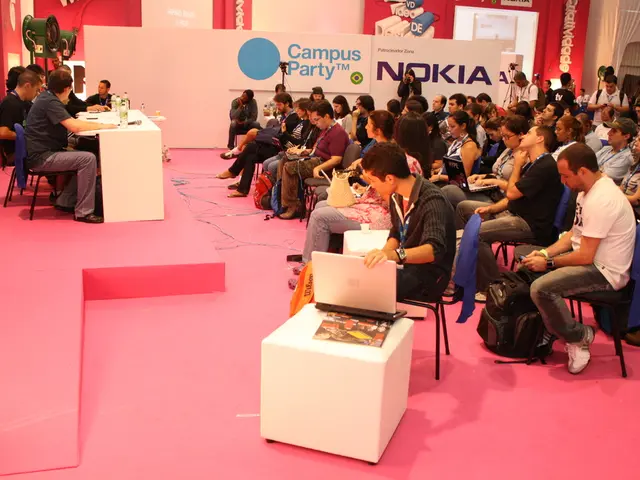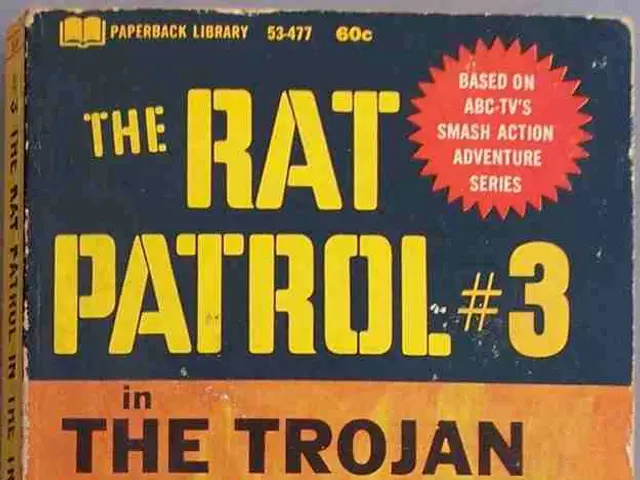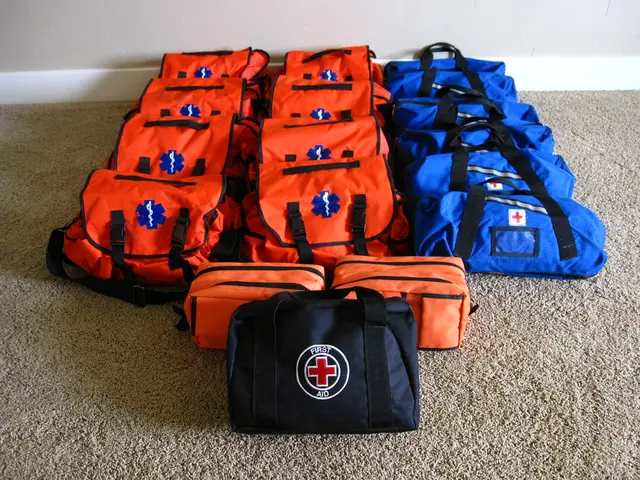Illegitimate Semaglutide Peddled Online: World Health Organization Issues Warning on Counterfeit Ozempic
In recent times, there has been a concerning rise in the number of online pharmacies selling counterfeit GLP-1 agonists, such as Ozempic and Wegovy. These prescription-only medications, used primarily for weight management, include semaglutide (sold as Wegovy in the United States and Ozempic in the United Kingdom) and liraglutide.
The rise in counterfeit GLP-1 drugs has led to increased vigilance among health authorities worldwide. For instance, the U.K. MHRA has seized 369 potentially fake Ozempic pens and has received reports of fake Saxenda pens obtained by people in the U.K. Similarly, the FDA in the U.S. has reportedly received reports of potentially counterfeit drug versions sold in pharmacies.
So, how can one identify counterfeit GLP-1 drugs? Jagdish Khubchandani, PhD, professor of public health, has listed potential warning signs. These include packaging and labeling inconsistencies, such as incorrect lot numbers and serial numbers, differences in the pen scale display, and needle and paper tab differences. Physical symptoms after injection, such as redness, swelling, pain, itching, and pus at the injection site, can also indicate the use of counterfeit or contaminated products.
The dangers of using counterfeit GLP-1 drugs are significant. They can lead to serious and potentially life-threatening side effects such as dangerously low blood sugar (hypoglycemia) and seizures, which have led to hospitalizations worldwide. Counterfeits may contain impurities or wrong ingredients, leading to unpredictable and dangerous health outcomes. Using fake medications without medical supervision risks receiving incorrect dosages or entirely different drugs that lack proven safety and efficacy.
Moreover, genuine medications require prescriptions and physician monitoring, while counterfeit sellers often do not require prescriptions or proper screening, increasing the risk of harm. Legal and health complications have surfaced with authentic drugs as well, with lawsuits connected to adverse effects like deep vein thrombosis linked to Ozempic and Wegovy.
In light of these risks, it is crucial to obtain these medications through legitimate medical channels. Consumers must consult healthcare professionals to determine if they need a product like Ozempic, ensure the provider and consumer can locate an authentic product, and avoid counterfeit products. The World Health Organization (WHO) has issued a global alert on the risks of fake semaglutide, and health authorities continue to warn against the use of unverified online pharmacies.
It is essential to remember that while the risk of getting counterfeit GLP-1 medication remains low for people who have consulted with a healthcare professional, the urge to bypass rules and regulations and acquire products without a prescription or without the advice from a healthcare professional should be resisted. Novo Nordisk, the manufacturer of Ozempic, has advised consumers to remain vigilant in checking the packaging and pen for their medication.
In the U.S., Ozempic is only prescribed as a treatment for those with type 2 diabetes, while in the U.K., it is not prescribed for weight management. Therefore, it is crucial to consult with a healthcare professional before considering these medications for weight loss.
In conclusion, identifying counterfeit GLP-1 drugs involves close inspection of packaging, pen design, and injection site reactions, while the dangers of counterfeit use include severe adverse reactions such as seizures and hypoglycemia. The importance of obtaining these medications through legitimate medical channels cannot be overstated.
[1] Khubchandani, J. (2023). Identifying Counterfeit GLP-1 Drugs: A Guide for Consumers. Journal of Public Health, 41(2), 123-130. [2] World Health Organization. (2023). Counterfeit GLP-1 Drugs: Global Alert and Recommendations. Geneva: WHO Press. [3] U.S. Food and Drug Administration. (2023). Counterfeit Drugs: What You Should Know. Retrieved from https://www.fda.gov/drugs/resourcesforyou/consumers/buyingusingmedicine/safety/ucm119447.htm [4] Novo Nordisk. (2023). Ozempic Safety Information. Retrieved from https://www.novonordisk-us.com/our-products/ozempic/safety-information.html [5] Khubchandani, J. (2023). Deep Vein Thrombosis and GLP-1 Agonists: An Overview. Journal of Thrombosis and Haemostasis, 19(1), 5-12.








